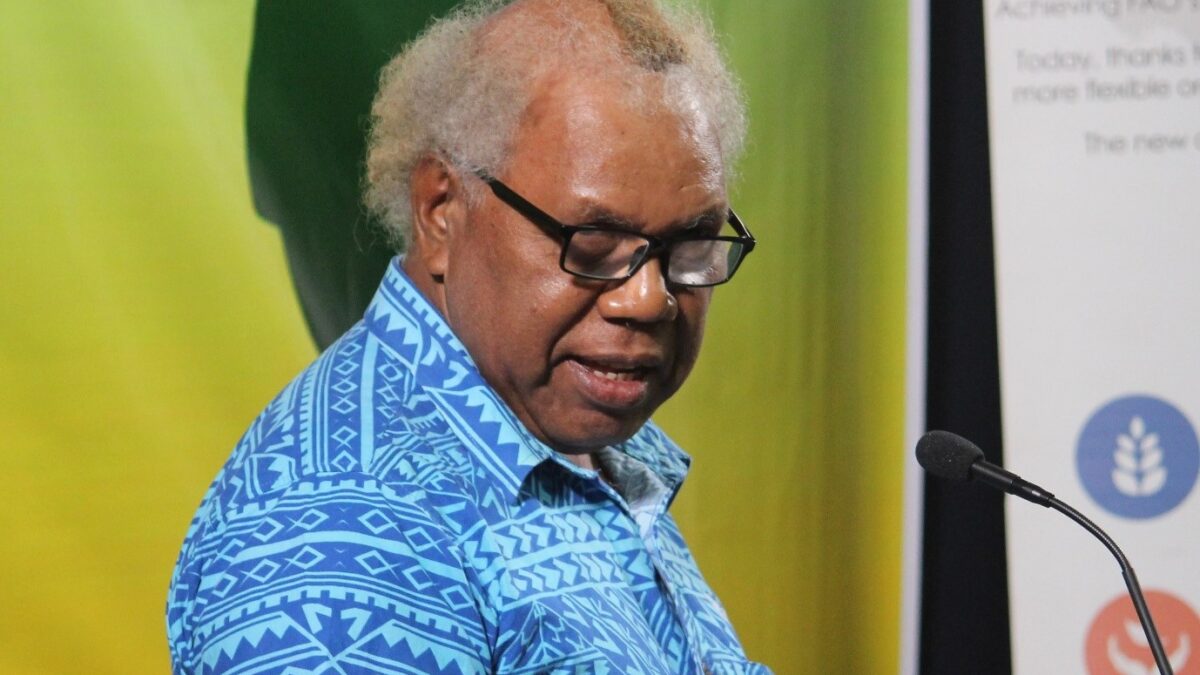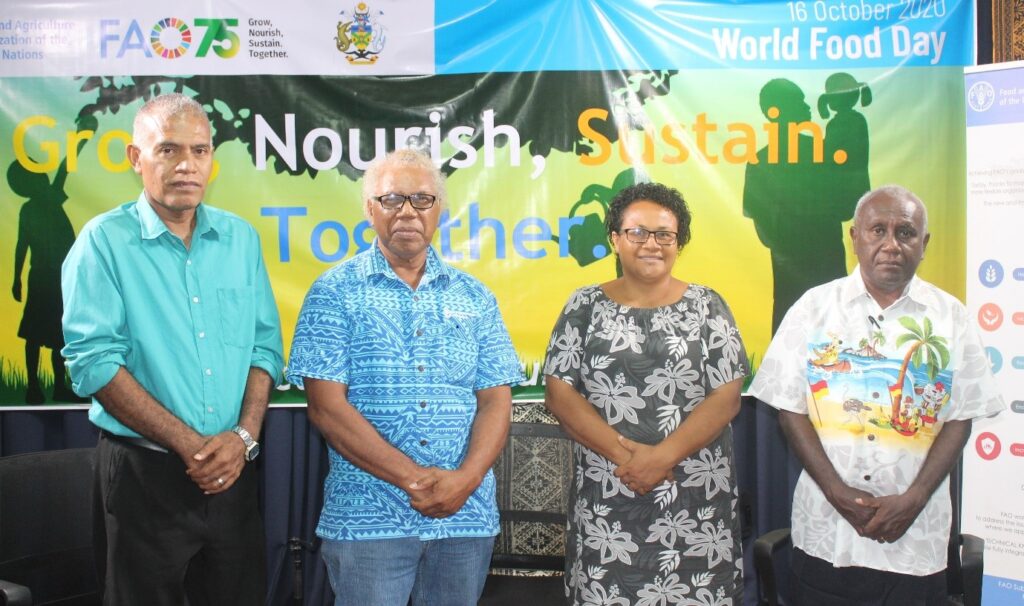

Saelea: Food & nutrition security remains top priority in FAO assistance for SI
Food and nutrition security remains the top priority areas of support by the Food and Agriculture Organization (FAO) of the United Nations for Solomon Islands.
FAO country representative Jimi Saelea revealed this during the recent World Food Day program hosted live on the national broadcaster, SIBC on 16 October 2020.
“Over the years, Solomon Islands received Technical Assistance from FAO in specific areas identified as priorities. These areas include Food and nutrition security, as well as resilience to impacts of disasters; Climate change, and environmental management.
“Agriculture, food and nutrition security still dominates the level of support that FAO provided for Solomon Islands,” Mr. Saelea said.
He added that under the Country Programme Framework, the focus is on improved policy, plans and legislation; Enhancement of ecologically sustainable agriculture (including fisheries and forestry) production; improved food quality and safety; improved production, processing and marketing of agricultural produce; and Protection and sustainable use of biodiversity.
“These assistance enabled capacity development for farmers, government officials, Non-state actors, women, youth and others to enhance their knowledge in agriculture, fisheries, sustainable land and forest management, food processing, food safety, sector and sub-sector policy development, and so on.
“The SI-FAO Programme, current and upcoming projects are being designed to reflect the challenges that COVID-19 have on agriculture, forestry, fisheries, health, environment, and education,” he added.
“…it is fundamental that special treatment be accorded to food production, transport, marketing and distribution of essential services that must be sustained. There is need for a strategic policy coordination between health, agriculture and social protection.

Deputy Secretary Technical Michael Ho’ota, FAO rep Jimi Saelea, MAL PS Ethel Frances and another FAO rep Nichol Nonga.
“This will mean establishing policy measures and legal frameworks that support sustainable food systems, for example on, nutrition, decent employment and soil protection.
“Private businesses, many of which have been severely strained by the pandemic disruptions, need to invest in sustainable, resilient food systems with decent employment and to develop, adapt and share technologies that transform food systems. Nevertheless, Let us recognize the importance and healthy traditional food systems which made our rural population resilient in the face of disasters,” he stressed.
On the pandemic, Mr. Saelea said Covid-19 is prompting many to re-assess how they produce their food.
“In the urban and peri-urban settings, backyard farming has taken on a new meaning with the support of the Disaster Livelihoods Sector Committee. Households in Honiara are now producing their own vegetables in their backyard. Similarly an FAO funded project to address city-region food systems will soon roll out for urban centres. I am sure most of us by now have begun growing a few vegetables in our backyard gardens. This is not only to produce healthy foods but also a healthy lifestyle in terms of physical exercise,” Mr. Saelea added.
Mr. Saelea then thanked the government, NGOs, Solomon Islands National University, private sectors and other UN agencies that have collaborated with FAO to address fundamental issues of food security, and livelihoods for Solomon Islanders over the years.
“All of us need to make food choices that improve both our health and that of our food systems, preserve habits that support them, respect food and food producers,” he emphasised.
Meanwhile, Hon. Minister Filualea said FAO over the last four decades has been in one way or another provided assistance to Solomon Islands in human resource development, policy, natural resource management, food systems development, infrastructure and data capture and analysis.
“The ongoing programme based on the Country Programme Framework 2018 -2022 consist of both regional and national actions ranging from fisheries, forestry, environment, health, and agriculture. New programmes to address emerging issues are also being discussed with FAO for assistance in the near future,” he said.
The Minister then acknowledged FAO for its continuous support to Solomon Islands with regards to food and nutrition security, environmental management, sustainable land management, sustainable forest management, sustainable fisheries, and livelihoods growth.
Solomon Islands became a member of FAO in 1985.
ENDS///